Trump's tariff pause the latest example of his pragmatism on the political stage
'You have to have flexibility,' Trump said after announcing a 90-day pause to customized tariffs on other nations
Tariff pause due to Trump wanting to be 'personally involved' in negotiations: Bessent
Treasury Secretary Scott Bessent said customized tariffs were paused Wednesday afternoon due to President Donald Trump wanting to be ‘personally involved’ in negotiations as dozens of nations contact the White House to strike deals.
President Donald Trump on Wednesday continued to burnish his reputation as a pragmatic president, pausing some of the tariffs he had imposed just days earlier — except against China — when investors showed signs of being "yippy" and the U.S. economy began to teeter.
The pause comes one week after Trump's highly anticipated "Liberation Day" announcement, when he unveiled customized, reciprocal tariffs on roughly 90 nations and a 10% baseline tariff on all nations. Trump did not pause China's tariffs, however, and instead increased them to 125% due to Beijing’s "lack of respect" toward America.
Treasury Secretary Scott Bessent said the customized reciprocal tariffs were paused for 90 days due to the high volume of more than 75 countries contacting the White House to strike a deal, adding Trump wanted to be "personally involved" in striking "bespoke" deals with the nations looking to negotiate. Trump had said earlier this week he would not pause the tariffs but was open to negotiations.
TRUMP SAYS HE'S RAISING CHINA TARIFFS FURTHER, PAUSING RECIPROCAL TARIFFS FOR OTHERS
Trump told the media people were "yippy" over the tariff plan and "queasy" over the bond market, adding he has to be "flexible" as president.
"I thought that people were jumping a little bit out of line. They were getting yippy. You know, they we're getting a little bit yippy, a little bit afraid, unlike these champions, because we have a big job to do. No other president would have done what I did. … I know the presidents, they wouldn't have done it, and it had to be done," Trump told reporters Wednesday outside the White House.
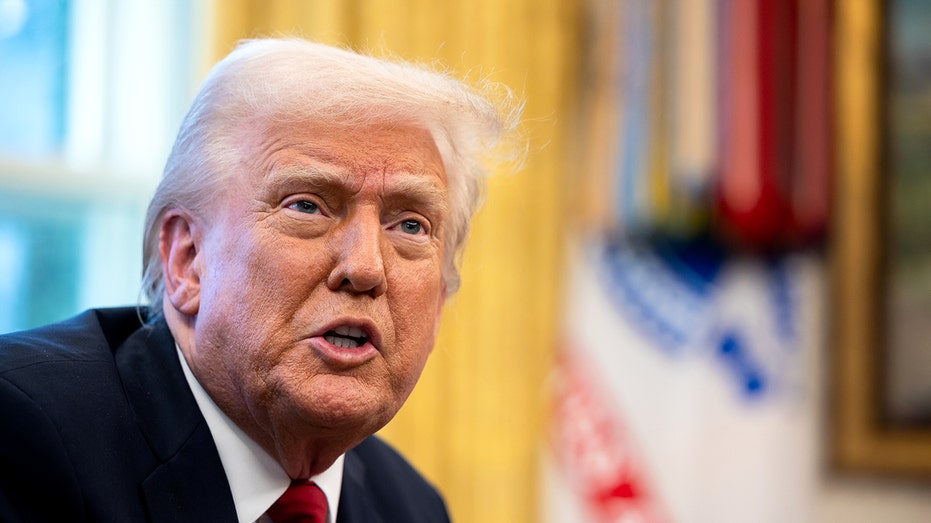
President Donald Trump speaks in the Oval Office of the White House in Washington, D.C., on March 26. (Francis Chung/Politico/Bloomberg via Getty Images / Getty Images)
Trump added he has to be "flexible" when asked about his credibility in announcing a pause after publicly vowing there would not be a pause to the reciprocal tariffs.
"You have to have flexibility. I could say there's a wall. … Sometimes, you have to go around or under the wall. Financial markets change. Look how much they changed. I think the word would be ‘flexible.’ You have to be flexible," Trump said.
Fox News Digital took a look back on the previous times Trump has leaned into taking a pragmatic, politically beneficial avenue, even if it went against a previous goal.
TRUMP REVEALS THE NEXT INDUSTRY THAT WILL FACE IMMINENT 'MAJOR' TARIFFS
During his first administration, a partial government shutdown that continued for 35 days came to an end in February 2019 when Trump signed a short-term spending bill that did not include funding for a border wall despite his demands that such funds be included in the legislation.
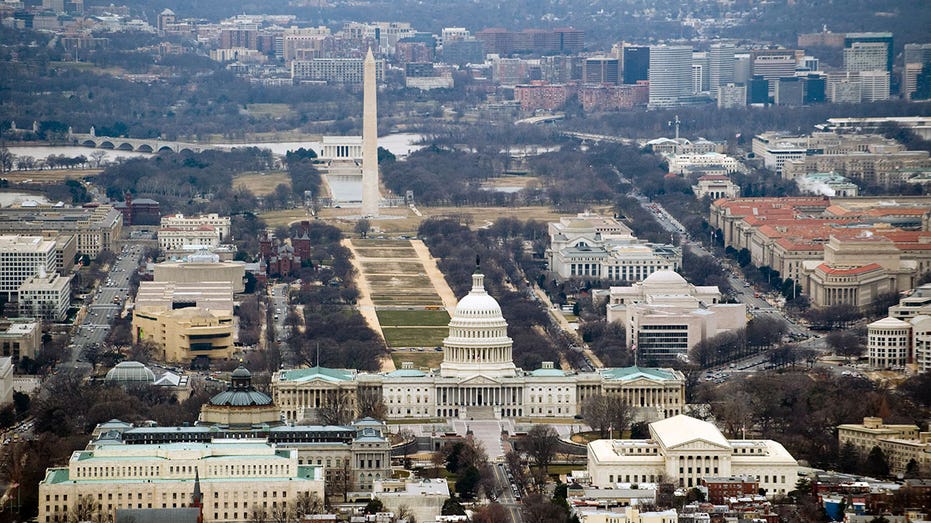
The skyline of Washington, D.C., including the U.S. Capitol building, Washington Monument, Lincoln Memorial and National Mall, on Jan. 29, 2010. (Saul Loeb/AFP via Getty Images / Getty Images)
Trump posted to social media at the time that signing the short-term spending bill was in "no way a concession," but that he signed it instead to aid the "millions of people who were getting badly hurt by the Shutdown." That same month, Congress passed a funding bill that included $1.4 billion for border security, while Trump declared a national emergency to free up additional federal funds to finance a border wall.
Trump has been praised as "pragmatic" by Republican allies, foreign leaders and even former President Barack Obama in 2016, who said he didn't believe Trump was "ideological," adding, "Ultimately, he is pragmatic in that way."
Trump has also taken a pragmatic stance toward work relationships, including employing or campaigning for high-level GOP politicians he previously railed against. Trump, for example, slammed Sen. Ted Cruz, R-Texas, during the 2016 presidential election as a "total hypocrite" and "like a baby" before the pair became staunch allies, with Trump campaigning for Cruz in the following years.
Trump also nicknamed then-Sen. Marco Rubio, R-Fla., "Little Marco" during the 2016 showdown for the GOP presidential nomination before the two became allies and Trump tapped Rubio to be his secretary of state in the current administration.
BESSENT WARNS CHINA ON CURRENCY MOVES, SAYS BOND MARKET ‘DELEVERAGING’ ISN'T SYSTEMIC ISSUE
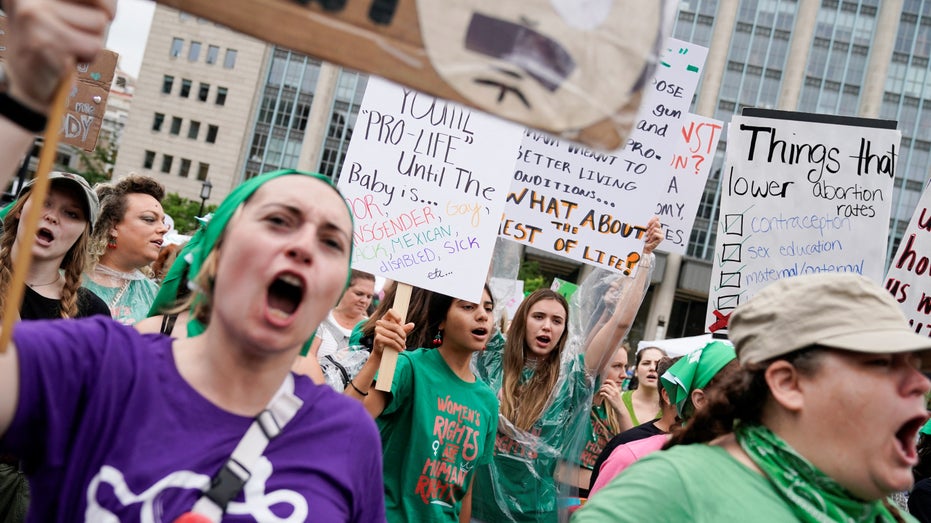
Activists attend a protest after the Supreme Court's decision to overturn the landmark Roe v. Wade abortion decision, in Washington, D.C., on July 9, 2022. (Reuters/Joshua Roberts / Reuters Photos)
Trump has maintained a pro-life position on abortion in his second term, including signing an executive order to end the use of federal taxpayer dollars to fund abortions. But he took a notably more measured approach to abortion during the 2024 election cycle after describing himself as "the most pro-life president" after his first administration.
During the 2024 election, as claims circulated that Trump would impose a national abortion ban if re-elected, Trump took a more muted position on abortion, including telling the media that Florida's six-week abortion ban "is too short." He also promoted abortion being left up to the states and voters, not the federal government. The Trump-backed Republican Party platform during the 2024 cycle only mentioned abortion once, which riled some conservative supporters.
Trump's 2024 stance on abortion, however, followed the Supreme Court in 2022 overturning Roe v. Wade, which effectively ended the recognition of a constitutional right to abortion and teed up a political football for Democrats during the midterms and the 2024 election.
TRUMP EXTENDS TIKTOK SALE DEADLINE 75 MORE DAYS, SEES 'TREMENDOUS PROGRESS' ON DEAL
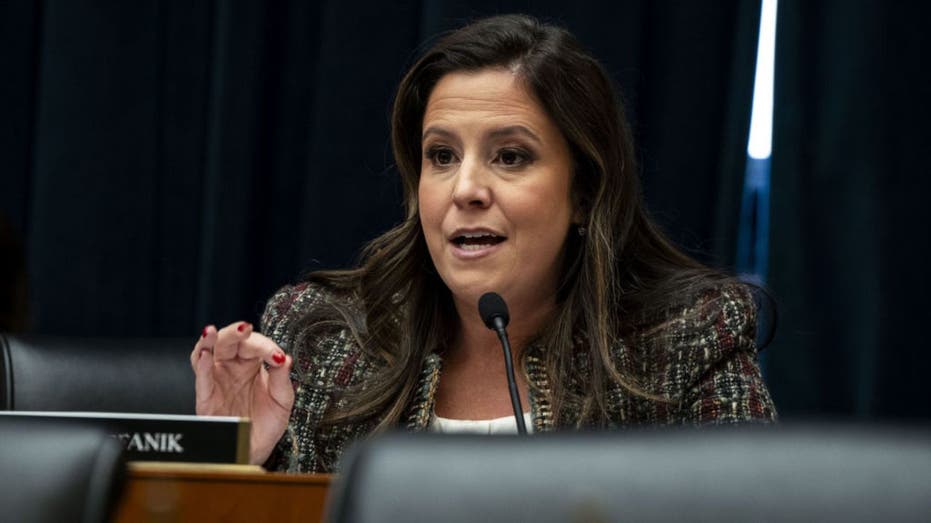
Rep. Elise Stefanik, R-N.Y., speaks during a House Education and the Workforce Committee hearing in Washington, D.C., on Dec. 5, 2023. (Haiyun Jiang/Bloomberg via Getty Images / Getty Images)
Last month, Trump took another pragmatic political avenue when he withdrew New York GOP Rep. Elise Stefanik's nomination for U.S. ambassador to the U.N. as Republican concerns mounted about the party's slim majority control of the House.
Stefanik is a longtime Trump ally the president has praised as an "incredibly strong, tough and smart America First fighter," but she stepped out of the nomination process to continue in the House and maintain a stronger majority for the party.
"I have asked Elise, as one of my biggest Allies, to remain in Congress to help me deliver Historic Tax Cuts, GREAT Jobs, Record Economic Growth, a Secure Border, Energy Dominance, Peace Through Strength, and much more, so we can MAKE AMERICA GREAT AGAIN. With a very tight Majority, I don’t want to take a chance on anyone else running for Elise’s seat. The people love Elise and, with her, we have nothing to worry about come Election Day. There are others that can do a good job at the United Nations," Trump posted to Truth Social last month.
FLASHBACK: TRUMP SAYS HE MAY LOWER CHINA TARIFFS ON CERTAIN CONDITION
Trump has also leaned into supporting the popular video app TikTok after railing against the Chinese-owned platform during his first administration. TikTok's base includes younger voters who never used or moved away from other social media apps such as Facebook or Instagram and became a helpful tool for the Trump campaign as he rallied support among youths by joining Gen Z podcasts and launching a TikTok account.
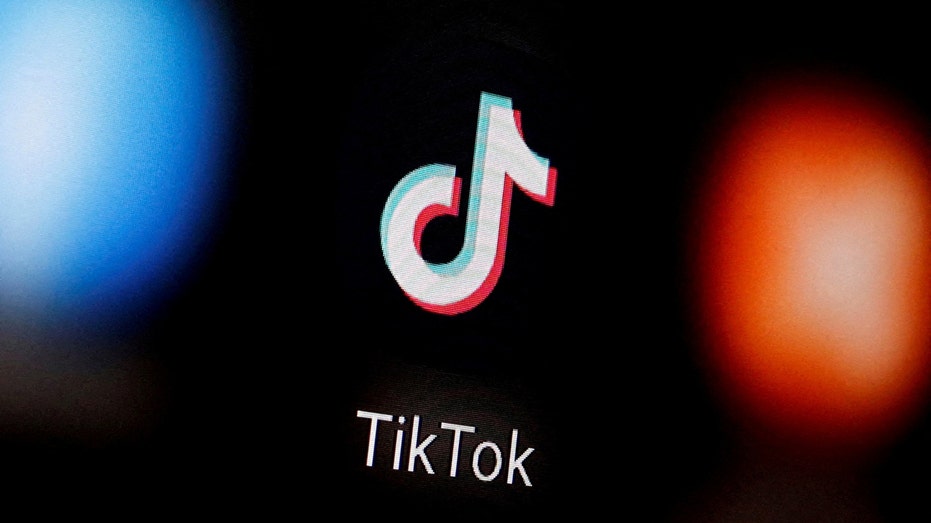
Trump has leaned into supporting the popular video app TikTok after railing against the Chinese-owned platform during his first administration. (Reuters/Dado Ruvic/File Photo / Reuters)
During his first administration, in 2020, Trump tried to ban the app from the U.S. market over national security concerns. Fast-forward to 2024, and the app was briefly disabled for U.S. residents in January after former President Biden signed legislation into law that gave TikTok's parent company until Jan. 19 to sell it or face a U.S. ban.
"If you get rid of TikTok, Facebook and Zuckerschmuck will double their business," Trump posted to Truth Social last year as debate over the app continued, referring to tech billionaire Mark Zuckerberg.
CLICK HERE TO READ MORE ON FOX BUSINESS
White House press secretary Karoline Leavitt said Wednesday after the announcement on the tariff pause that Trump is showing in real time the "Art of the Deal," referring to his 1987 book on business advice that promoted the real estate tycoon as a premier deal-maker.
"Many of you in the media clearly missed the ‘Art of the Deal.’ You clearly failed to see what President Trump is doing here," Leavitt said. "You tried to say that the rest of the world would be moved closer to China, when, in fact, we've seen the opposite effect.
"The entire world is calling the United States of America, not China, because they need our markets, they need our consumers and they need this president in the Oval Office to talk to them. And that's exactly why more than 75 countries have called, because the United States of America is the best place in the world to do business."




















